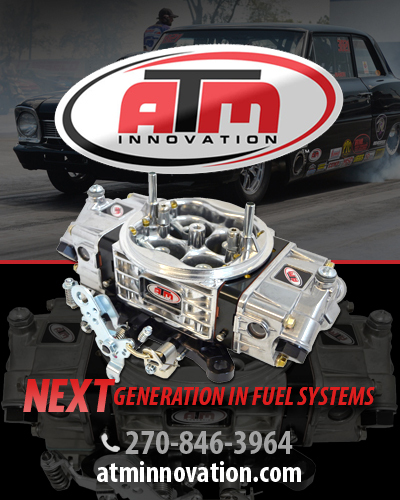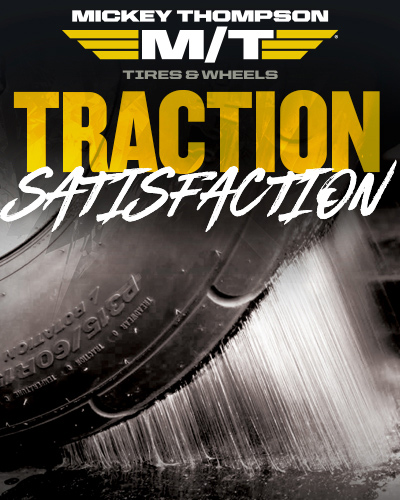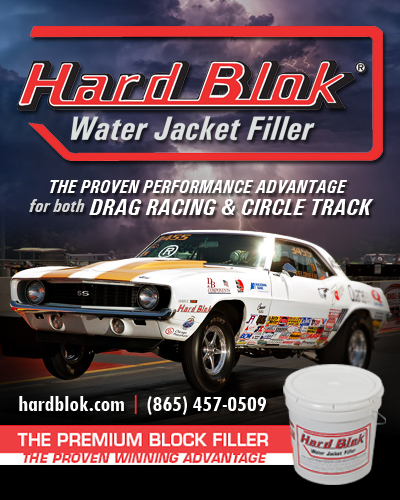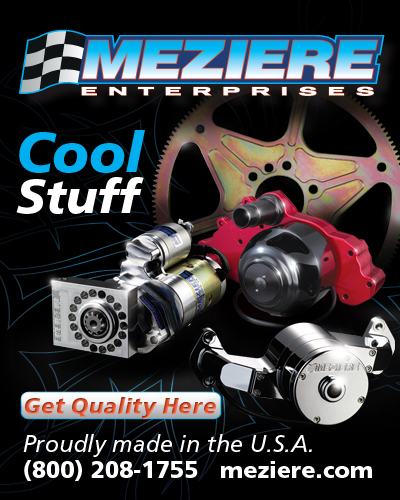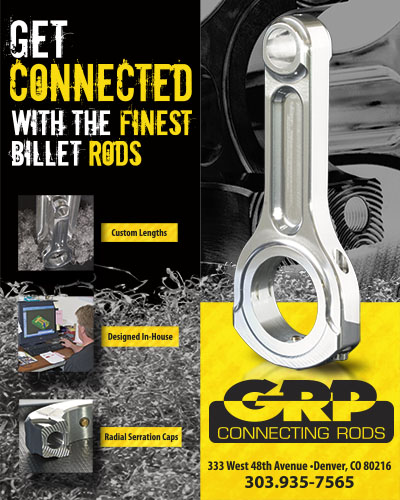THE WILL TO NEVER QUIT - RICKIE SMITH'S FIRST SEASON AS A TEAM OWNER SET THE STAGE

 Rickie Smith had a simple objective, make it to the end of the season without going broke.
Rickie Smith had a simple objective, make it to the end of the season without going broke.
Remaining solvent was Smith's mindset 40 years ago, in 1982 when the decorated sportsman world champion who turned professional drag racer entered his first season as a team owner.
Smith learned much about himself that season despite sharing the same mindset as his critics. He had no clue he would survive, much less win a world championship.
Smith had become an urban legend in the Bristol, Tenn.-based IHRA after winning so much in 1976 and 1977 as a sportsman racer in the Super Modified division, a class where he won so much that the series canceled the class. He went professional drag racing at the end of the 1978 season in the Mountain Motor Pro Stock division, where his first three full seasons scored top finishes of tenth, second and second.
Those seasons Smith raced on someone else's dime. Keith Fowler owned the Jack Roush-powered Country Shindig Maverick Smith raced as a sportsman, and later the Don Hardy-built Mustang II in Pro Stock.
"I didn't think it was possible to win a sportsman championship," Smith admitted. "When I started racing, I just wanted to outrun Lyle Epperson and Mike Boyles [a seven-time IHRA champion from Smith's hometown of King, NC]. That's the people I just wanted to try to beat. I had no idea I'd go any further than that. And it just kept going. I just started winning, and I got hooked up with Keith, and then I got to winning."
Smith had plenty of reasons to doubt himself heading into 1982 after the way his 1981 ended. At the tail end of the season, during a match race at Richmond Dragway in Virginia, he lost control after a tire blew on the Oak Ridge Boys-sponsored Mustang II and crashed, destroying the machine.
Then Fowler informed Smith he wasn't rebuilding and was out of drag racing.
Smith knew he would take whatever steps necessary to keep racing at the level he'd ascended. He wasn't a quitter, even though the odds were mightily stacked against him.
Smith drew on his youth for inspiration as Fowler supplemented his racing mightily.
"I'm not bragging, but it's just the way I played ball, the way I played," Smith said. "You can talk to my football coach; you can talk to anybody in high school. I was athlete of the year my senior year and most valuable player in football. First time here that had ever been done far as a lineman. It's normally quarterbacks, and running backs got all that stuff. But that's how hard I worked in high school to be the best. I did not like to get beat."
 Smith realized he could run with the veterans like Bob Glidden, Warren Johnson, and Ronnie Sox or the veterans of the day and had the stats to prove it.
Smith realized he could run with the veterans like Bob Glidden, Warren Johnson, and Ronnie Sox or the veterans of the day and had the stats to prove it.
"I said, 'I am as good as they are, driving these cars. I just got to try to do this," Smith said.
Smith borrowed $30,000 to purchase the engine and transmission out of the crashed Mustang II from Fowler. And it came at a time when Smith was the move vulnerable financially.
"We had just built the house that we live in right now and moved into it in '79," Smith recalled. "I mean, here I am, got a mortgage at the house, I'm a damn bulldozer operator. And I took a chance, and I went and borrowed the money."
Enter engine builder Jon Kaase. Kaase's top client and friend "Dyno" Don Nicholson had just retired, leaving the masterful engine builder without a flagship client.
"Kaase and I had become really good friends," Smith said. "I was going down there [to his shop], tearing the motors down, washing parts, and he'd do the machine work and all that and help me put them back together. He told me, he said, 'Man, I'll help you. Just whatever you want to do, I'm going to help you."
Smith next went to Don Hardy, who in turn helped him with a chassis and talked Hairy Glass, a leading fiberglass manufacturer at the time, into donating a 1982 Mustang body.
Smith had a good track record, so obtaining parts sponsorships wasn't an overwhelming challenge.
With a complete operation in possession, Smith understood it took money to make it go down the track.
That's when Smith's side job came into play. Remember when we said Smith was a bruising football player and athlete? His toughness as an offensive guard and middle linebacker earned him a spot as a bouncer at a country-western nightclub, which would become pivotal in his drag racing.
"I was working some on Friday and Saturday night, just trying to make some extra money," Smith admitted.
That's when Smith befriended club owner Wayne Wilson, as Smith described as a "big ole' fella," with a voice so deep he could be one of the Oak Ridge Boys.
Smith became Wilson's "boy" for his willingness to do whatever it took.
 Wilson's club, Standing Room Only, lived up to its reputation for overflowing crowds primarily due to its entertainment value.
Wilson's club, Standing Room Only, lived up to its reputation for overflowing crowds primarily due to its entertainment value.
"That place was packed every Friday and Saturday night," Smith recalled. "He turned away a lot. He couldn't get them in there because of the Fire Marshal. And it went on its way for years."
After the mechanical bull fad ran its course, Wilson's brand of Tough Man contests played right into Smith's hand. It was a Battle of the Bouncers, and Smith set out to prove his mettle to Wilson. Bouncers from clubs all over the area came to represent their clubs and owners.
Smith was determined to make Wilson the envy of the other club owners. It was an obstacle course of sorts.
"You had to start and run through a wall," Smith explained. "Then you had to stop and hit this punching bag, and that scored a lot of points. You had to ring that. You had a few other things you had to do, and then at the very end of it, they had sheets of that damn particle board stuff or whatever it was. It's like plywood, but it's called particle board. They had full-made sheets of that stuff. You rang the bell after you busted through that particle board."
Smith, the same one who had fought a monkey at the King County Fair as a teenager and got whipped, won the Battle of the Bouncers.
Smith's willingness to do whatever, combined with the Battle of Bouncers victory, got Wilson's attention. Wilson knew Smith was a championship drag racer.
When Wilson inquired about Smith's drag racing, he told the boss he had everything to go racing with except for money.
"I said, 'Wayne, I'll tell you what. You give me $10,000, and you have a door on the car," Smith said. H
Wilson responded, "$10,000?"
"I said, "Yeah."
"And we all thought that was a lot of money. He said, 'Man, I don't know."
 Smith said they went back and forth all evening with Wilson, saying at the end of the night, "I'm going to do that with you, bro. I'm going to take a chance with you and see what happens. I'm going to give you the $10,000."
Smith said they went back and forth all evening with Wilson, saying at the end of the night, "I'm going to do that with you, bro. I'm going to take a chance with you and see what happens. I'm going to give you the $10,000."
Smith rolled into the first IHRA event in 1982 without any spare parts and just one engine.
Smith went a couple of rounds at the IHRA Winternationals in Darlington, SC, but the next event finished runner-up to Warren Johnson in Rockingham, NC. Smith added two more wins to clinch the championship.
Smith had pulled off the most improbable championship.
"I won it with a $10,000 sponsorship," Smith said. "When I finished that season and Kaase was doing my work, and he wasn't charging me hardly anything but just enough to, I guess, cover his labor or whatever. But when I finished that season, I had absolutely nothing to spare. Nothing. When I finished the season, I had a spare Lencoo I'd fixed up and a short block. We didn't have enough to do heads and everything else, but we had a spare short block. So if we broke a rod or done something like that, we could at least get it back going. And that's kind of what I had at the end of the year. I'd saved up."
Smith would go on to win four IHRA Pro Stock championships on the strength of an unprecedented 31 national event wins, with 22 runner-up finishes.
In 1997, Smith transitioned to IHRA's Pro Modified division and won in only his second national event. Four years later, NHRA brought in Pro Modified on an exhibition basis, and it was Smith winning the very first national event in Gainesville, Fla.
Smith has officially won 16 NHRA events since the class became a recognized series in NHRA.
Smith is well on his way to the Hall of Fame induction, and even though he's in the twilight of his career isn't about to tip his hand regarding the future. The path to get there, Smith says, is nothing short of a miracle.
"You couldn't have told me back then it would turn out the way it has," Smith admitted. "Didn't win it on money, won it on sheer determination and the willingness never to quit. Have you ever just wanted something so bad? Well, that was me. I wanted it bad."

























